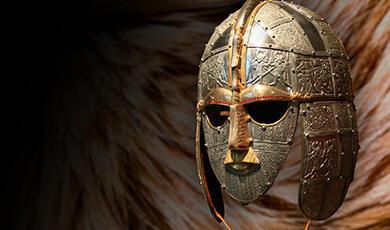Press release: Paganism in Roman Britain

Romans had a "pluralistic, multi-faith, multi-ethnic society, similar to our own”
Hutton moved by Roman infant memorial from 2000 years ago, testimony to a powerful love
Embargo: Wednesday 7th December, 7pm.
I would like to invite you to a free public lecture by Gresham Professor of Divinity Ronald Hutton on Paganism in Roman Britain.
In his lecture, Professor Hutton will discuss the interaction between different pagan religions in Roman occupied Britain. He will ask whether the native British religions were "untouched by Roman civilisation" or were "thoroughly romanised". "In one sense it is insoluble- we just do not have enough evidence- and in another, both sides are clearly right".
In Roman pagan religions, Professor Hutton argues, “the vital component was not theology, but ritual, meaning staged and formal actions to catch the attention and approval of a deity”. The greatest central act of these religions was sacrifice, “the offering of gifts to deities to keep them happy and responsive” in a natural world in which life experience was capricious and brutal. Professor Hutton will say that “the one required act from all Roman subjects was to offer sacrifice when asked…. To the current emperor’s genius”, but aside from this, Romans subjects were free to practice their own religions in private. The result of this was a “pluralistic, multi-faith, multi-ethnic society, similar to our own.
“When a Roman soldier killed a wild boar on what is now Scargill Moor, Yorkshire, he raised an inscription in gratitude to the Roman god of hunting, Silvanus. He realised, however, that the moor was sacred to a local god, Vinotonus, and so he paid respect to this deity on the other side of the inscription,” he will say.
He concludes his discussion by suggesting that primary evidence can bring us startingly close to the individual experiences of Roman subjects. For example, we know a woman called Saturnina visited the Uley Pilgrimage Temple after she was robbed: “She obviously knew that he could be invoked against thieves, but not actually who he was. We know this because when somebody gave her a lead tablet and a pen, she addressed the God first as Mars, and then as Silvanus, and only the third time as Mercury. Then, however, she clearly became certain that she had got it right, because she wrote a passionate curse. It remained there until another woman, the archaeologist Ann Woodward, found it in the red Cotswold soil in the 1970s.”
He goes on to say: “Even dearer to me personally is the inscription on a tombstone at Bath: ‘To the protection of the divine: Mercatilla, freedwoman and foster-daughter of Magnius, lived one year, six months and twelve days.’ So what can we learn from that? First, that Magnius was a commoner who had made money, because he had one name but could afford to commission a tombstone and own slaves. One of those slaves must have been Mercatilla’s mother, with whom he seems to have fallen in love, because he gave her her freedom after the baby was born, so granting the child herself the same status, and adopted Mercatilla as his own daughter.”
This memorial had a special resonance for our speaker, linking ancient past to modern present, and you can discover why at the climax of his talk.
ENDS
Notes to Editors
You can sign up to watch the hybrid lecture online or in person below; or email us for an embargoed transcript or speak to Professor Ronald Hutton: l.graves@gresham.ac.uk / 07799 738 439.
Read more about Professor Ronald Hutton.


 Login
Login






